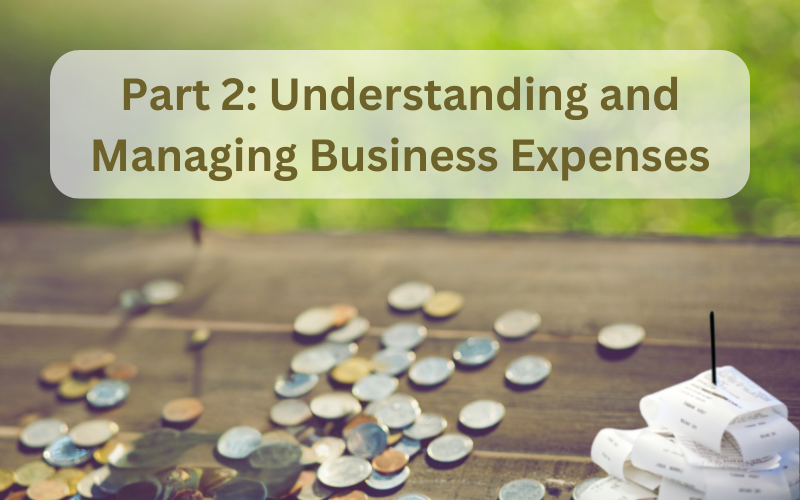
Understanding and managing business expenses (part two)
In part two of Accredited Supplier Sones Accountancy Services series on effectively understanding and managing expenses, we will focus on practical strategies for tracking expenses effectively and share valuable tips for managing your business expenses. By implementing these techniques, you will not only gain clarity over your financial situation but also empower yourself to make informed decisions that enhance profitability and ensure the sustainability of your trade business.
Let us discover how to take control of your finances:
How to Track Expenses Effectively
- Tracking expenses does not have to be complicated, especially with modern technology that streamlines the process. Here are some steps to help you get started:
- Use accounting software – software, such as Xero, can automate much of the expense tracking process, categorising expenses automatically and integrating with your bank accounts. This saves time and reduces the risk of manual errors.
- Keep digital records - gone are the days of keeping shoeboxes of receipts. Use apps that allow you to take photos of receipts and store them digitally. This makes it easy to access them when needed.
- Set up expense categories in your software - customise your accounting software to match the expense categories that are relevant to your trade business. This helps with more precise tracking and analysis.
- Regularly review your expenses - set aside time each week or month to review your expenses. Look for any unusual or unexpected costs and adjust your budget if necessary.
- Reconcile bank statements monthly - regular reconciliation of your bank statements with your expense records helps catch any discrepancies early and ensures your accounts are accurate.
Tips for Managing Business Expenses
Here are some helpful tips to ensure you are managing your business expenses well:
- Separate personal and business finances - always keep your business and personal finances separate. This makes tracking expenses much simpler and keeps your accounts clean.
- Set a budget - establish a budget for each expense category and stick to it. Regularly compare your actual spending to your budget to see where adjustments are needed.
- Negotiate with suppliers – do not hesitate to negotiate better rates with suppliers or look for bulk purchasing discounts. Small savings can add up significantly over time.
- Review subscription services - regularly review any subscription services you are paying for, such as software or marketing tools and cancel those that are no longer useful.
- Invest in energy-efficient tools and equipment - although there may be an upfront cost, investing in energy-efficient tools or vehicles can save you money in the long run on fuel and maintenance.
In conclusion, mastering expense tracking and management is essential for the success of your trade business. By implementing strategies such as using digital tools, setting up a systematic tracking process, and regularly reviewing your expenses, you can gain valuable insights into your financial health.
Effective expense management not only helps you identify cost-saving opportunities but also enhances your budgeting and forecasting capabilities. With a clearer understanding of your financial landscape, you will be better equipped to make strategic decisions that drive growth and profitability.
For personalised advice on managing your business expenses, speak with an accountant or bookkeeper who can provide tailored guidance that aligns with your specific business needs.
